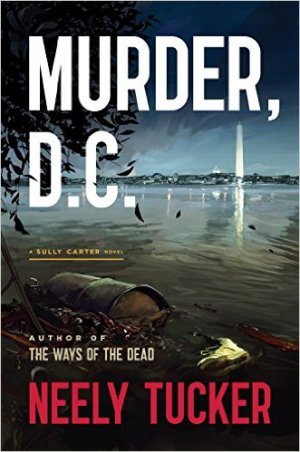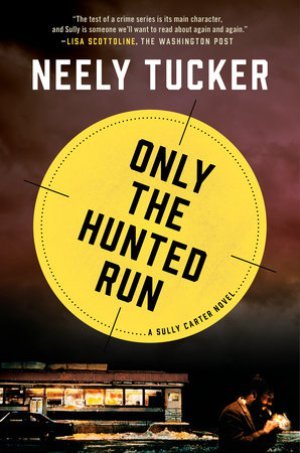Alex Segura's Blog, page 17
April 6, 2016
Out of the Gutter on DOWN THE DARKEST STREET
Anyone who enjoys solid PI novels will find a lot to love here and will be happy they grabbed this book.
April 1, 2016
Stuff & Nonsense 036: Let’s Save Tony Orlando’s House
Welcome back!
We’ve got a fun interview this week, but before we can get to that, let me share a few quick book promo things (Down the Darkest Street hits THIS MONTH from Polis Books!):
I talked a bit about Down the Darkest Street and the Pete mysteries at International Thriller Writers The Big Thrill (I interviewed Chris Pavone about his new novel, The Travelers, for the same issue). Also had a nice time discussing DTDS with fellow crime writer Angel Colon at My Bookish Ways. You can also experience “a day in the life” of Pete Fernandez by reading my guest blog at Dru’s Book Musings.
You can also enter to win signed copies of both Down the Darkest Street and Silent City at Goodreads.
If you’re in the NYC area, the launch party will be at The Mysterious Bookshop on the book’s release day, 4/12. In terms of other events, here’s a look at the first wave:
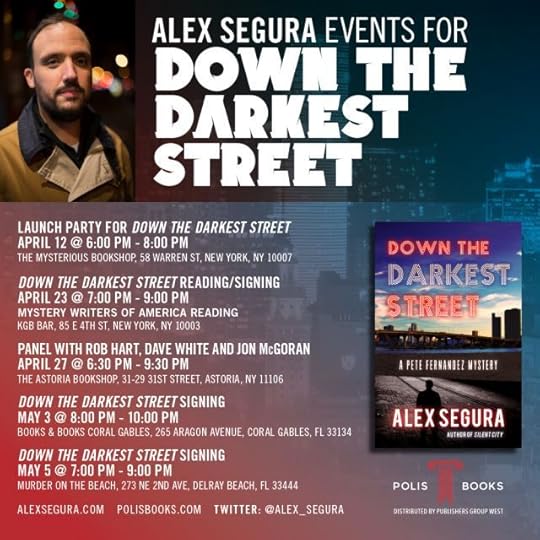
And, if you haven’t found the time to pre-order Down the Darkest Street, you still can. Here’s all the info. Some books are already in the wild. (And, psst, the reissuedSilent City is out, too!)
OK, let’s get to the main attraction!
***
I am lucky that I get to read a lot of good books. On any given day, I’m reading something that I find entertaining or informative or enraging. Every once in a while, you get to read a great book. A book you can’t put down that also makes you want to go back and compulsively read everything the author’s written. That was Lisa Lutz’sThe Passenger for me. (I enjoyed the book so much I dove right into her Spellmanseries, which has been a lot of fun so far. I know, I know – I’m late to the party.)
Lutz’s latest novel is a thrilling story, but it’s also a thoughtful exploration of identity and modern society, told from the perspective of one of the more memorable protagonists in recent memory. It’s full of well-earned twists, cross-country action and some suspenseful and genuinely funny moments. I can’t recommend it enough. If you’re not convinced, stick around, as Lisa was kind enough to swing by to chat about the book, series vs. standalones, her (non) inspirations and more.
(This interview was edited for space and clarity, etc.)

Lisa, thanks for doing this interview. For someone who might not be familiar with your work, what’s the Lisa Lutz origin story?
For ten years, including most of my twenties, I was trying to make it as a screenwriter. The result was an almost unwatchable film called “Plan B” that promptly ended my screenwriting career. I wrote extensively on the subject for Salon a while back in a piece called “Confessions of a Hollywood Sellout.” Then someone suggested that I try turning one of my other screenplays, The Spellman Files, into a novel. Nine books later, here I am.
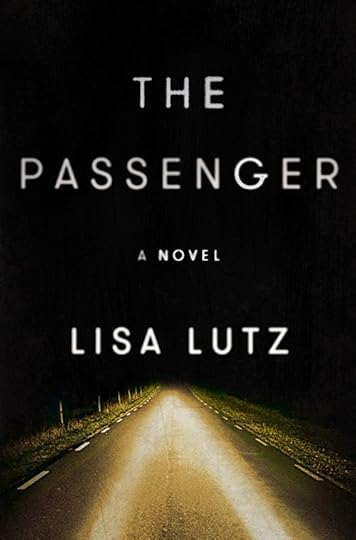
That’s quote the story – and succinct, too. I loved your latest, The Passenger.It’s one of my favorite novels of the year. What was the inspiration behind the book?
I never have real-world inspirations. I tend to go with vague ideas that I’ve been knocking around for a while. I was interested in writing about identity and how flexible it is in some ways. When someone presents herself in a way that’s very much at odds with her interior life, I’m interested. I was also drawn to the idea of an event that fundamentally changes one’s relationship with the world
On top of all that, I wanted to write—because I wanted to read—a story about changing identity in which the protagonist doesn’t have any special gifts or technical prowess. My character is often forced to live off the grid and under precarious pseudonyms.
I may be alone in this, but I got a strong Patricia Highsmith and Jim Thompson vibe from The Passenger, and loved the uncertainty that emanates from the narrator. What’s it like writing in an unreliable voice like that?
Well, first, thank you. Thompson and Highsmith were two of my favorites growing up, and the first crime novelists whose books I devoured. I’m sure something about their respective styles took anchor in my subconscious. But I don’t consider my narrator unreliable. She withholds some information until later in the book, but she always speaks the truth. We’ve had so many unreliable narrators lately that I think we’re creating more suspicious readers!

Fair enough. Maybe it was just how she parceled out details that made her seem unreliable to me. Zooming out a bit, you’ve written a long-running and acclaimed series and a few well-regarded standalone novels. What are the pros and cons of each? What’s next for you?
It’s hard for me to weigh the different experiences against each other. The Spellmans will always be connected to a certain time in my life, and I’m hugely grateful that I had that opportunity. Those books were challenging and also genuinely fun to spend time on. But getting to explore new terrain has been intoxicating. So I can’t imagine going back.
Next up: I’m working on some things, but not quite ready to talk about them.
I look forward to hearing more when you can talk about it! Were there any particular films or books or shows that inspired The Passenger?
No. I wish I had a more interesting answer. I tend to write the stories that are the most vivid in my mind.
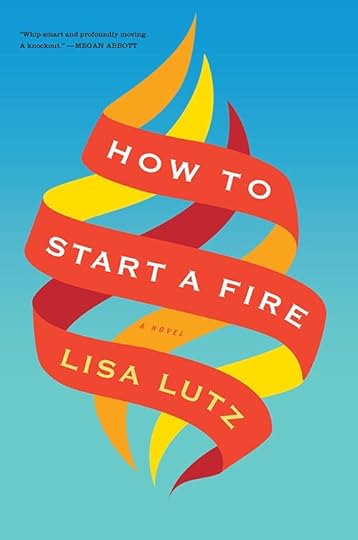
That’s interesting enough, I think. There’s a lot of travel in the book – which you describe in a fluid, engaging way. Not easy to do. How much research did you have to put into this book, and was that normal compared to your past work?
There’s definitely some research, but I’m not sure how many details in the book about each specific place are research-related. I asked a friend for some help with Austin; he gave me a sense of neighborhoods and a list of interesting bars. But I did see those spectacular bats firsthand. Some places I fully made up. There is a real town called Recluse in Wyoming, but it’s extremely unlikely that it bears any resemblance to the town in my book. Much of the novel is about the experience of getting from one place to the next—following maps or staring out the window, watching the world pass you by, having brief encounters with people you’ll never see again.
As for how this stacks up against previous projects, nothing will ever compare to the research for How to Start a Fire. There was a fair amount of medical detail, which I thought I had nailed. Fortunately, my copyeditor moonlighted as an ER doctor (I am not kidding!) and she set me straight. One day I hope to have a source in every field to set me straight.
How does one moonlight as an ER doctor? I guess that’s a story for another time. What have you been reading lately?
While I was traveling recently, I read Alison Gaylin’s What Remains of Me, Chris Pavone’s The Travelers, and Linda Lovelace’s memoir, Ordeal—don’t ask. I highly recommend the Gaylin and Pavone books. I’d skip the third. And the lovely Sarah Weinman just hooked me up with Megan Abbott’s You Will Know Me. I’m only a few chapters in, but I’m fairly certain you will love this book.
I second your vote on the new Gaylin and Pavone – both books are great. And I can’t wait to get my hands on a copy of the new Megan Abbott. Lucky you. Thanks again for visiting, Lisa!
***
Links!
Sarah Weinman examines a forgotten 1903 killing spree and how it could seen as the archetype for today’s rash of mass shootings.
The Washington Post’s Presidential podcast has become a favorite at Stuff & Nonsense HQ.
Samuel Sattin interview Victor LaValle.
A little more Lutz: The author on hate mail.
Celebrating the work of Uncle Scrooge comic book artist Carl Barks.
This story reminds me that we’re near the end of FX’s great The People vs. O.J. Simpson mini-series. Oh, and this is happening, apparently.
The romance novel industry – from the perspective of the male cover model.
Fellow Polis Books authors Steph Post and Rob Hart in conversation.
Hooray for a new Jaime Hernandez New Yorker cover.
Bosch season 3 is on the way, as is an adaptation of Gillian Flynn’s Sharp Objectsas an HBO series starring Amy Adams (with Flynn writing some episodes).
A comprehensive Ed Brubaker/Sean Phillips retrospective and a look back at 1995’sDC vs. Marvel crossover for the ages.
That’s all! Thanks to my pal Austin for the GIF. See you next time!
March 30, 2016
Interview with My Bookish Ways
Please welcome Alex Segura to the blog. It’s looking to be a big year for Alex, a reissue of his debut novel, Silent City; the release of the follow-up, Down the Darkest Street; an Archie meets Ramones comic; AND a new baby! Thankfully, I was able to convince the sleep-deprived author to answer a few questions for us.
Click here to read the interview
March 24, 2016
Stuff & Nonsense 035: Nightclub Jitters
Hey, welcome back.
A little self-promo before we get to the interview:
So, the response to the Silent City reissue was great (grab your copy if you haven’t), and we’re now in full Down the Darkest Street mode, which arrives on April 12 fromPolis Books (pre-order info here). If you’ve already read it, please do take a minute to leave a review where you bought it and/or on Goodreads. Those things help, etc.
Speaking of Goodreads, you can enter to win a copy.
Here’s that snazzy graphic again, in case you need more motivation.

If you’re in or around New York, we’ll be kicking things off in style at The Mysterious Bookshop on April 12. Do come by. If not, I’ll be hopping around the map on tour this year, so I hope to see you at some point.
And, ICYMI, The Huffington Post spoke to me about the second Pete book, calling it a “compelling page turner.” I mention some of the books that inspired the writing of DTDS in the interview, too. I also spoke with crime writer Scott Adlerberg at Gutter Books about the Pete books, Miami, comics and more.
Up next: an interview I enjoyed so much I’ve posted it twice…
***
You should be reading Neely Tucker.
Whenever someone asks me for a crime fiction author suggestion, one that might be flying a little under the radar, Neely comes to mind. He writes great mysteries and makes it seem easy – an impressive feat.
Tucker’s Sully Carter books – The Ways of the Dead and Murder, D.C., out now, with a third, Only the Hunted Run, on the way – paint a realistic, compelling and eye-opening picture of the nation’s capital through the eyes of a flawed and all-too-human protagonist. It has the ingredients of some of of my favorite private detective series – think Lippman, Pelecanos, Connelly and Lehane – with a flair and rhythm all its own. Carter’s petulant, smart, thick-headed and brave. He’s a guy you can root for and curse at in the space of a few pages. Tucker’s prose is vibrant but compact, befitting a journalist of his pedigree. The only downside to his novels? I usually read them in a few days and have to wait for the next one.
I was first introduced to Tucker through mutual journalism friends and finally had the pleasure of meeting him in person at Miami Book Fair last year. Trust me when I say you won’t regret picking up his books.
Thanks to Neely for swinging by and chatting. This interview was edited for space and clarity. (It also originally ran at group crime blog Do Some Damage earlier today.)
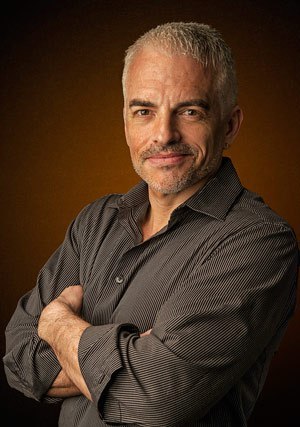
Neely, thanks for taking the time to chat. Can you give readers a quick introduction to you and your work?
Sure. By day, I’m a reporter on the Washington Post’s national desk, currently assigned to the 2016 Presidential campaign. By night, I’m a novelist and non-fiction author. I’ve been a journalist for thirty years, sixteen of them at the Post, eight of them abroad. Worked in sixty plus countries or territories in Europe, Africa, the Mid-East, lots of it in conflict situations. Published four books (three fiction) and a chapter in another. Three kids. Wife. Dog. Grill. Football. Bourbon. Seventh-generation Mississippian now living just outside D.C.
What was the inspiration for the Sully Carter books? What made you want to shift to writing fiction after your success in newspapers and nonfiction?
When I came back to the U.S. in 2000, the Post assigned me to the courthouse as a way of getting to know the city. There was a fascinating case of the last serial killer to work in D.C., a guy named Darryl Turner. He killed prostitutes in a rough part of town. Got away with it for years. That was the inspiration for the novel. In the first draft, Sully was just one of several primary characters involved the case. He was a reporter who’d come home from covering the Bosnian war, damaged psychologically and physically. He was an amalgamation of things that I and a lot of other reporters had been through. My agent thought he was the strongest character in the draft, and, besides, he had the possibility of being the narrator of a series. So I rewrote it from his point of view.
As to the switch….I wanted to be a novelist since I was a kid. I grew up outside of a tiny little town in Mississippi and loved to read and write stories. I don’t know why. My parents were very conservative but they’d let me read just about anything in the town library. So I was reading “Lord of the Rings” and Hemingway and Stephen King and the Hardy Boys and Faulkner and “The Exorcist” and Tennessee Williams and Truman Capote and Eudora Welty, even when a lot of it was WAY over my head.
I got interested in journalism only halfway through college. Willie Morris, the first actual writer I ever met, said that since I wanted to travel as well as write, there was always a newspaper where ever you wanted to go, and then you could meet interesting people all the time and never have to get a real job. Plus, you need to learn how to write sentences, and newspapers can teach you that. I may be the only person who took career advice from an inebriated southern writer at a Saturday night baseball game and didn’t wind up in a holding cell.
And the advice paid off!
Like some of my favorite detective series, the Sully novels feature a strong sense of history and place. I know you’re not a native of DC, but what made you want to set the first few books there? And why was it important to give Sully a journalism background?
Practicality, mostly. I wanted the books grounded in reality, but I also wanted them to have a natural way of taking place in a national spotlight. Ergo: Gritty crime in D.C. that gets tangled up, one way or another, with the “ruling class” of federal D.C. In the first book, the teenage daughter of a powerful D.C. appellate judge who might be the next Supreme Court nominee – hello, today’s headlines! – is killed in a bad part of town. Like that.
As far as the sense of place….thank you. I think reporting from so many different places around the planet gives you a pretty good idea for what’s distinctive about a place, and how to dive into that.
The second book in particular, was steeped in D.C. history – some fictional, most real. What was the research for that like? Do you find that aspect of writing fiction – the research and organization of data – easier to handle with your background as a journalist?
Murder, D.C. is about the death of the scion of one of the city’s wealthiest black families. He’s killed in a waterfront park that’s long been a haven for drugs. Which, as it happens,is on the site of a former slave-holding pen before the Civil War. The park is wholly invented, but not that much — the nation’s biggest slave-selling auction house was just across the Potomac in Virginia, a distance of about half a mile.
I would argue that the background as a journalist both helps and hurts the research. It helps in that you know how to find what you’re looking for and how to synthesize large amounts of information. It hurts in that you tend to rely on that too much.
In fiction, readers don’t care if you describe the interrogation room exactly as it is. It only matters you describe is so authoritatively that they believe it. I once profiled Richard Price, who is famous for doing tons of research. He’d go out riding with cops and hanging out in bars and take all these notes and then….never look at it. Never opened a notebook while writing. He said his job was to understand the plausible and then lie responsibly. I thought that was brilliant. (Even in Clockers, perhaps his most famous book, the title is not actually slang for a street dealer. He just made it up, but now everybody thinks that it was real. The Oxford English Dictionary even called him about it.)
That’s a great Price story – and such a relevant point about fiction. It’s all about making someone believe your story. My own novels feature a washed up journalist in Pete Fernandez. Sully’s career is much more successful, though they both seem to suffer from similar problems – drinking and a dangerous curiosity being the most obvious. How important was it for you to have a protagonist who wasn’t a seasoned detective?
Very. Sully needed to be a reporter in order to bring in the mysterious workings of the media (some good, some not so much) in these high-profile murder cases. That was something I wanted to write about. Also, so that he could be a surrogate for the reader. He’s not a cop or detective. He doesn’t have subpoena power. He can’t make people talk to him. He doesn’t get to analyze fingerprints or DNA or shell casings. He is bound by a fairly strict ethical code. So he’s just this guy on the street, behind the yellow tape, trying to figure out a violent crime. Of course, everybody’s lying to him about their role in it, or might be, or they might be telling the truth as they know it, but they might be factually mistaken. He has to figure out who’s telling the truth, then publish the public narrative of the crime…but if he gets it wrong, he gets fired. Or worse. High stakes all around.
Your third Sully book is on the way. What can you tell us about it?
Only the Hunted Run, is based on the very real assault on the Capitol Building by a schizophrenic named Russell Weston. In 1997, he made it into the building and killed two security guards. In “Hunted,” a killer makes it much further into the Capitol and eventually winds up at St. Elizabeths (no apostrophe), the gothic-era mental hospital on a hill in Southeast DC. Happily, in real life, it really does overlook the rest of the city, which it also does in “Hunted.” (Take that metaphor as far as you wish.) Sully is in the Capitol when the shooting starts. Like all the Sully books, it’s sort of a crime story about the American Dream gone really, really wrong.
I can’t wait to read it. Now, I have to ask this, because his books played a huge part in my own decision to write crime fiction, and I see a lot of echoes of his work in your own – are you a fan of George Pelecanos’s work? The D.C. you portray isn’t identical to his, nor would I expect it to be, but you touch on a lot of the same issues afflicting the city. Mainly things like the dangerous racial divide and the stark contrast between the political elites and the nameless poor that are sometimes just a mile apart. Can you talk about that a bit?
George and I are both greatly influenced by the late great Elmore Leonard, particularly the dialogue. I think what you’re seeing in both of us is the ghost of Dutch. I worked in Detroit and got to know him. We were friends for twenty years. You learned from Dutch just by being around him. Lovely, lovely man. I’ve only met George once, but we’ve talked several times by phone and e-mail. He’s great. We share a lot of the same likes and dislikes, and I really admire his writing. I stopped reading him, though, as soon as I started my books in the city. I didn’t want to be unconsciously influenced in how I was doing my stories set on the same turf. You’ve got to do your own thing. But, man, I’d love to work with him on a script or something. How fab would that be?
Sign me up. I see the Leonard influence, too – that makes a lot of sense. What an amazing person to learn from. Are there any books or movies that you’ve been enjoying lately?
I’ve got two jobs and three kids. I’m way behind on everything. The wife and I just watched all five seasons of “Game of Thrones” in about three weeks. It was awesome. Just read All the Light We Cannot See, which I really liked. Read So Long, See You Tomorrow, William Maxwell’s classic. Swamplandia! by Karen Russell. Into the Heart of the Sea. At the moment, I’m picking through stories in The Annotated Lovecraft. As a journalist, I should be thrilled that “Spotlight” won the Academy Award for Best Picture….but I would have voted for “Mad Max: Fury Road.”
***
Links!
An excellent (and depressing) Frank Sinatra Jr. profile, revisited.
Novelist Alexander Chee on his tenure as a “cater-waiter” for the Buckleys.
This piece sums up many of the reasons why I think “Better Call Saul” is the best show on TV now.
Hannah Engler on the decline of fun and feminism in mysteries.
One ex-DC Comics Publisher interviews another: Paul Levitz in conversation with Jenette Kahn.
Lisa Lutz lists some of her favorite crime novels written by women. I’d include Lutz’s latest, The Passenger, too.
Lisa Levy profiles Adrian McKinty – twice!
Congrats to fellow Polis Books authors Rob Hart and Bryon Quertermous, respectively.
***
What I’m reading: Just finished The Passenger by Lutz and Kevin Flynn and Rebecca Lavoie’s great true crime book, Dark Heart. Revisiting some Harry Bosch with Michael Connelly’s Nine Dragons. On deck: Margaret Millar’s A Stranger in My Grave and Timothy Hallinan’s King Maybe. I’ve also been pecking at a re-read of DC/Vertigo’s Sandman Mystery Theater.
What I’m watching: Just closed out the second season of Amazon’s “Bosch,” which I enjoyed more than I expected. I thought the first season was fine-to-good, but this was a substantial leap forward and the casting is excellent. Lots of “The Wire” alums and Jeri Ryan is a standout. Also: “The People vs. O.J. Simpson” and “Better Call Saul.” On deck: “Daredevil” season two and new episodes of “The Americans.”
What I’m listening to: I wish I had some great music suggestions to share, but it’s mostly just been me singing Beatles songs to get our son to sleep. I’m way behind on podcasts, too.
Alright, until next time!
March 16, 2016
My Bookish Ways on SILENT CITY
Miami is no stranger to crime fiction. Books, TV, and movies have used the city to great effect in order to tell the hard-edged tales seeping from its underbelly. With that said, with Alex Segura’s debut novel, Silent City it’s a pleasure to read a Miami story with not only local perspective but a Cuban perspective. And no, Scarface doesn’t count.
Huffington Post Interview and Review
Set in a gritty, sun-drenched Miami, the newest Pete Fernandez mystery, Down the Darkest Street, is a compelling page turner. Fernandez himself is a former reporter at the Miami Times who can’t quite keep screwing his life up or involving himself in intricate mysteries. This newest book sees him tracking down a serial killer before more victims are lost and before his personal life can implode completely. It’s smartly written book that offers an insider’s view of Miami and weaves a fascinating mystery that we only hope Pete can get to the bottom of.
Click here to read the interview and review
March 15, 2016
Stuff & Nonsense 034: Weather with You (or, SILENT CITY is out today!)
I know, I know. It’s been a while since I did one of these. But quality over quantity, right? Oh, and we just had a kid.
But here we are! If you’re new, welcome! If you’re not sure why you’re getting this newsletter, unsubscribe info is at the bottom – sorry to see you go!
Okay, onward…

This newsletter will be a bit more promo-heavy because, today, SILENT CITY, the first Pete Fernandez mystery, is being reissued in paperback, ebook and audiobook! The second Pete novel, DOWN THE DARKEST STREET, will be hitting on April 12in hardcover, ebook and audiobook. Both books come via the fine crew at Polis Books!
SILENT CITY introduces the world to Pete Fernandez – a washed-up Miami journalist who’s hit bottom following the death of his father. Reeling from a series of terrible events, Pete stumbles onto a missing person’s case that drags him into a bigger series of murders plaguing the city. The book has gained nice mentions from places like THE HUFFINGTON POST, THE MIAMI HERALD, and CRIMESPREE MAGAZINE, and great plugs from bestselling authors like Brad Meltzer, Sara Gran and Jeff Abbott.
***
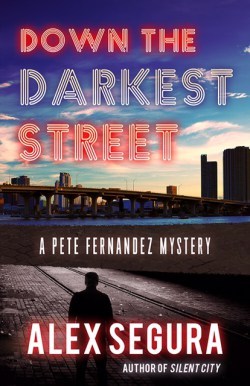
In DOWN THE DARKEST STREET, the sequel to SILENT CITY, Pete is pushed past his breaking point and left to face his personal demons and a killer cutting a bloody swath across Miami. The novel has already earned great advance praise from amazing authors like Laura Lippman, Megan Abbott, Reed Farrel Coleman, Hank Phillippi Ryan, Chris Holm and more. We’ve also seen positive reviews at BOOKLIST, SUSPENSE MAGAZINE and MY BOOKISH WAYS, to name a few, plus a great profile in THE GUARDIAN that ran a few weeks ago.
Want to know how you can get your copy or how to spread the word? Here’s what you can do:
BUY SILENT CITY AND DOWN THE DARKEST STREET. I realize this is obvious – but hey, it never hurts to be direct.
REVIEW SILENT CITY AND DOWN THE DARKEST STREET on Goodreads and/or at the online vendor of your choice. Reviews – Amazon in particular – are extremely important/helpful to authors. If you read the books and enjoyed them, please let people know.
GET A SIGNED BOOK! I’ll be doing events in New York City, Miami, Milwaukee, San Diego and other cities! It all kicks off with the DOWN THE DARKEST STREET launch party on April12 at the historic Mysterious Bookshop in Manhattan. I’ll also be hitting The Astoria Bookshop on April 27 – and then the tour begins!
SPREAD THE WORD via Facebook, Twitter, Tumblr, Instagram, etc. This is the best link to use to promote both books, or the images below.
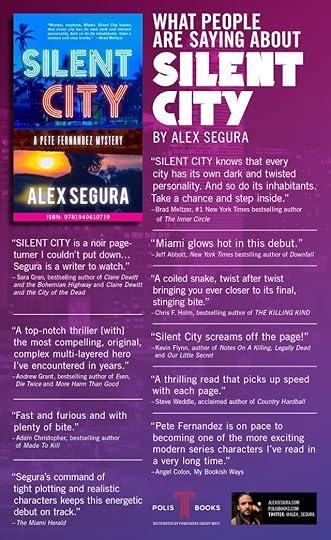
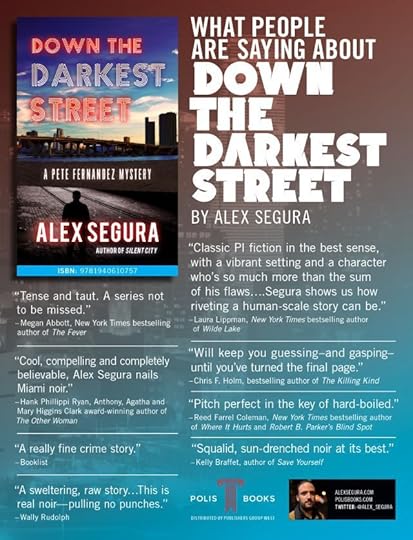
Okay, now that we’ve got all the self-promotional stuff out of the way, in lieu of an interview, here are a few great books that may have slipped past you.
I hope to interview the authors (if I haven’t already) in future newsletters. But the best I can do for now is tell you that these books were each compulsively readable and hard to put down. Enjoy!
THE KILLING KIND by Chris Holm
PIMP by Ken Bruen and Jason Starr
WHERE IT HURTS by Reed Farrel Coleman
DARK HEART by Kevin Flynn and Rebecca Lavoie
GRAVEYARD LOVE by Scott Adlerberg
WHAT REMAINS OF ME by Alison Gaylin
LET THE DEVIL OUT by Bill Loehfelm
LITTLE PRETTY THINGS by Lori Rader-Day
EVEN DOGS IN THE WILD by Ian Rankin
***
Links!
Some of these are old, but I won’t bore you with the same excuses as to why.
The wonderful Lauren Beukes on writers and their cats. Be warned: tears will flow when you read this.
Alison Gaylin lists her Top Ten Hollywood Mysteries.
You caught Sarah Weinman and Megan Abbott on Morning Edition, right? Okay, good.
How a slice of pizza may have caught California’s longest-active serial killer.
Speaking of Sarah, she lists her best true crime books.
Before O.J. and his Bronco, Miami had its own “trial of the century” – in 1966.
While we’re on the topic of O.J.: I don’t think Marcia Clark needs to be redeemed, but I am glad she is finally getting her due. Also, the Simpson trial series on FX is surprisingly entertaining, in no small part due to Sarah Paulson’s excellent turn as Clark. This Paulson profile was also particularly good.
Six Neo-Noir gems from the early 1990s.
What it’s like growing up with a dad who wrote nearly 400 erotic novels.
Read Bob Kolker’s excellent LOST GIRLS. Then read this story about the case.
Alright! Until next time.

February 4, 2016
Stuff & Nonsense 033: Waiting for the Great Leap Forward
Oh, hi.
Just last week I was going on about how this newsletter would go out every other week. Best laid plans, etc.
That said, this’ll be a quick one: fun interview, a few book links you may have missed, and the usual closer.
I may be off the grid for a bit in the coming weeks, but know it’s not because I don’t want to spend time with you. 
January 30, 2016
Stuff & Nonsense 032: Stay Up Late
Hello! Welcome back.
This newsletter seems to have settled into a nice, every-other-week routine. Cool? If you guys are happy with that, so am I.
We have a chat with an author you should keep an eye out for plus some other stuff to discuss, so let’s go…
***
I first met Claire Booth at Bouchercon in Long Beach a few years ago. It was one of those things where within a few minutes of talking to someone, you realize you have a handful of friends in common. In this case, it was fellow author Kristi Belcamino and my good pal Wayne Lockwood, who runs Codorus Press. Claire and I were in similar spots, career-wise. She was pitching her first fiction novel and I was looking for a new home for my next Pete book.
Fast forward to now, and Claire’s new book, The Branson Beauty, is slated to hit via Minotaur in July. It’s an impressive debut, but not a surprising one if you’ve read Claire’s previous work, specifically her true crime book, False Prophet. It was a pleasure to chat with her. (As usual, this interview was edited for length an clarity, etc.)
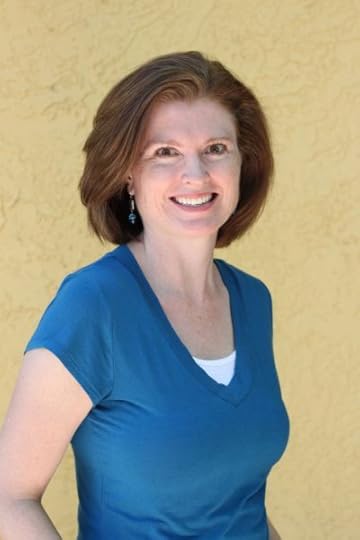
Claire, thanks for visiting this little newsletter. Can you introduce yourself, for those who might know know you?
I used to be a newspaper reporter, which was the best job in the world. I met new and interesting people every day and got to cover all sorts of crimes – the unusual, the sordid, the silly. A little bit of everything. I’ve also lived a little bit of everywhere. I went from Nevada to Missouri, to Washington, D.C., South Florida, the Seattle region, and then the Bay Area. Needless to say, Washington, D.C., was the silliest.
Eventually, I decided it was time to leave newspapers. But I missed writing desperately (that sounds better than saying I missed crime), so I decided to start writing books. Many long years later, here I am!
Before we dive into discussing your new book, it appears we share a South Florida connection! How did I miss this? Did we work at The Miami Herald at the same time?
Why yes, and you always ignored me in the elevator. Just kidding. Actually, I worked for the Boca Raton News, a smaller South Florida paper owned at that time by the same company that owned the Herald. Boca was a fantastic place to work. I got to cover some great crime stories, including one where someone snuck into an airport hangar and stole the Aston Martin that was used in the James Bond movieGoldfinger.
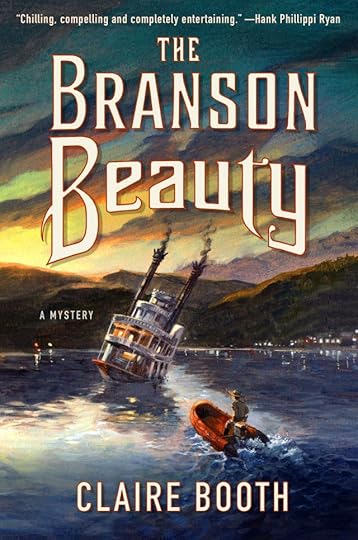
Hey, I dunno! Those elevators were pretty busy sometimes.
What can you tell us about your debut novel, The Branson Beauty?
The book is set in what I think is one of the most interesting places in the country. Branson is not a big place – only about 11,000 people live there – yet it gets millions of visitors a year. It is in a very proudly rural area in the Ozark Mountains. And I wondered what would happen if someone got dropped in from the outside and was suddenly put in charge of an entire law enforcement department. So that’s what I did to my main character, Hank Worth. He comes in and has to figure out all sorts of small-town politics and then on top of that, solve a murder that happens at one of the area’s biggest tourist attractions, The Branson Beauty showboat.
This is your first fiction book, but you’ve written some true crime. I’m a huge fan of the genre and really enjoyed The False Prophet. What was it like researching and writing it? Were there true crime books that served as an inspiration?
It took a very long time. I had covered the case for the newspaper from the day the defendants were arrested, but I still had to wait until the trial was over to really get started on the book. That’s when I got access to the court exhibits, and that’s when law enforcement would talk to me. They wouldn’t before that because there they didn’t want to possibly jeopardize the case by talking about it in depth before a verdict was returned. So that right there was four years.
That was when I started the interviews. I knew what all the witnesses had said on the stand, but there’s another layer of information that I needed. I needed to know what they were feeling throughout. What they were doing when they heard the news. What kind of car they drove to the police station. What kind of sound the battering ram made when it smashed in the door and how many swings it took. How long the lead detective had been married. Those kinds of questions don’t get asked in court. But I really felt that they were crucial to the book. That’s what turned it into a narrative instead of just another news report.
For me, the best true crime books make you forget that you’re reading true crime. They have well-developed characters, good pacing, and they read like a novel – even though everything in it is true. Ann Rule was always an inspiration. She really knew what she was doing. Also, Edward Humes, a reporter whose true crime books are fantastic.
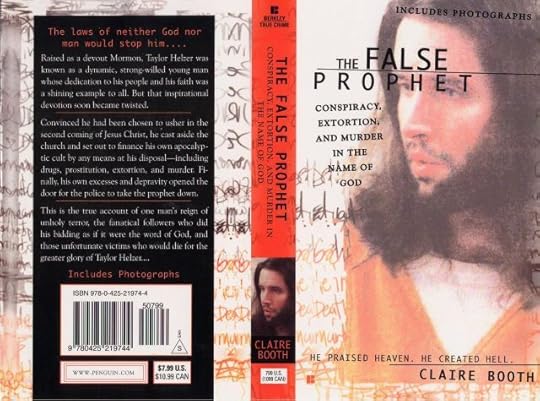
Can you talk a little bit about the transition from true crime to fiction?
It was quite a switch! I honestly felt like I was using different muscles in my brain. I never, ever made things up when I was writing true crime. Everything had already happened, and my job was to form all the pieces into a narrative. When I started the novel, I really had to work at using my imagination. It had not had any exercise in a long time. It was hard, but also a lot of fun. I felt like I was being allowed to play.
The research aspect was very similar, though. If you use a fact, you have to get it right. The difference was in the amount of research. With true crime, I would have to track down what color shirt a person was wearing, or what he had for breakfast. If I couldn’t find that out, I couldn’t include it. With The Branson Beauty, I could just decide. Blue t-shirt; biscuits and gravy. Done.
As a first-time novelist, what were some of the challenges you faced? How tough was it getting an agent and then getting your first book deal?
I went about this a bit differently from most people. I needed an agent for my true-crime book, so that was when I acquired my drawer full of rejection letters. (And they are actual letters. This was back in the day when you mailed – mailed! – your queries.)
But I eventually did find an agent – a fantastic one – and he’s stuck with me ever since. He encouraged my switch to fiction and set out right away to sell The Branson Beauty once it was done.
What can you tell us about your Branson Beauty protagonist, Hank Worth?
Hank is a 37-year-old guy who is a pretty skilled cop. But he’s never been a supervisor or a manager, and he’s pretty uncomfortable with it. He also has a lot going on at home – two little kids, a busy wife and a father-in-law who is, to put it nicely, a real pain in the neck.
Are there any authors you’ve looked to for advice, or who have inspired you on the business/promotional side?
That’s actually a really hard question, because there have been so many. Everyone in this community is unbelievable kind and welcoming. All the authors I’ve met have been willing to answer my questions or take the time to explain things. For a genre that’s all about violence, deceit and betrayal, crime fiction has absolutely the nicest people.
Totally agree! What’s next after The Branson Beauty?
Right now, I’m working on Hank’s next case. I also have a few ideas for stand-alone novels that I’ve been pondering. We’ll see how those go.
Did I miss anything?
Not a thing! Thanks for having me!
***
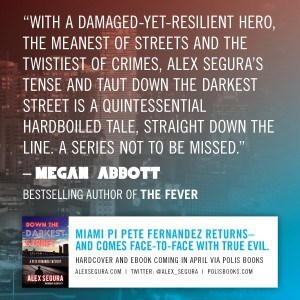
It’s been an eventful few weeks for Down the Darkest Street. In addition to the great advance blurbs the book has been receiving, it seems to be getting some nice early review attention, too. Sons of Spade (“I just loved reading the book”), Pop Culture Vulture (“a gritty, gripping, character-driven tale”) and David Gallaher (“a strong second novel”) all had favorable things to say, which is always gratifying. So, yeah.You can pre-order it and the first Pete book, Silent City, now. Just thought I’d throw that out there.
I also did an interview at La Bloga about the books and got a mostly-good mention at comic book entertainment and rumor site Bleeding Cool. Bad Beat, the Pete/Ash story I co-wrote with Rob Hart, got a positive review at Gutter Books, too.
I spoke with Ian Rankin about his excellent new Rebus novel, Even Dogs in the Wild, at LA Review of Books.
These are the books I’m looking forward to this year.
What does The Thin Blue Line director Errol Morris think of Making a Murderer?
Speaking of, here’s a fun chat between Karin Slaughter and Alafair Burke onMurderer and Burke’s great new book, The Ex. And if that’s not enough Murderertalk, here’s Laura Lippman on the ethics of armchair detective work in relation to the documentary. Like this guy.
Oh, what the hell. Here are a few more Making a Murderer stories:
How does the town of Manitowoc respond to fans of the show? “You don’t know.”
The questions that nag a former Wisconsin NBC reporter about the Avery case.
Okay, on to some non-Making a Murderer links:
Sarah Weinman and David Hayes discuss In Cold Blood.
Reed Farrel Coleman discusses his new novel, Where It Hurts, at The Huffington Post.
Another piece on Black Wings Has My Angel – making me want to read it all the more.
The Cartel author Don Winslow on Sean Penn’s “El Chapo” interview: “Call it anything you want – except journalism.”
Congrats to the Edgar nominees!
Meanwhile: The shaming of Robert DeNiro.
The Atlantic on why Carol is misunderstood.
That’s all for now. See you soon!
January 23, 2016
Some advance praise for DOWN THE DARKEST STREET
Down the Darkest Street, the second Pete Fernandez novel is still months away, but that hasn’t stopped the buzz from building – which is great. If the praise below motivates you, the book is up for pre-order now (as is the Silent City reissue, coming in March, also from Polis Books).


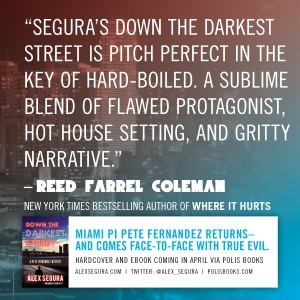

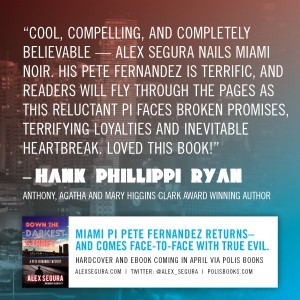
Needless to say, I’m humbled and blown away by this. These are some of my favorite writers – people whose work I follow compulsively. Their books are automatic purchases for me. To think that they dug my work is really something. You should take a minute to buy at least one of their books – I guarantee you will not be disappointed. Save Yourself, The Fever, The Killing Kind, Where It Hurts and The Wrong Girl are particular favorites of mine.
So, yeah. You can pre-order the book here. Hope you enjoy!



